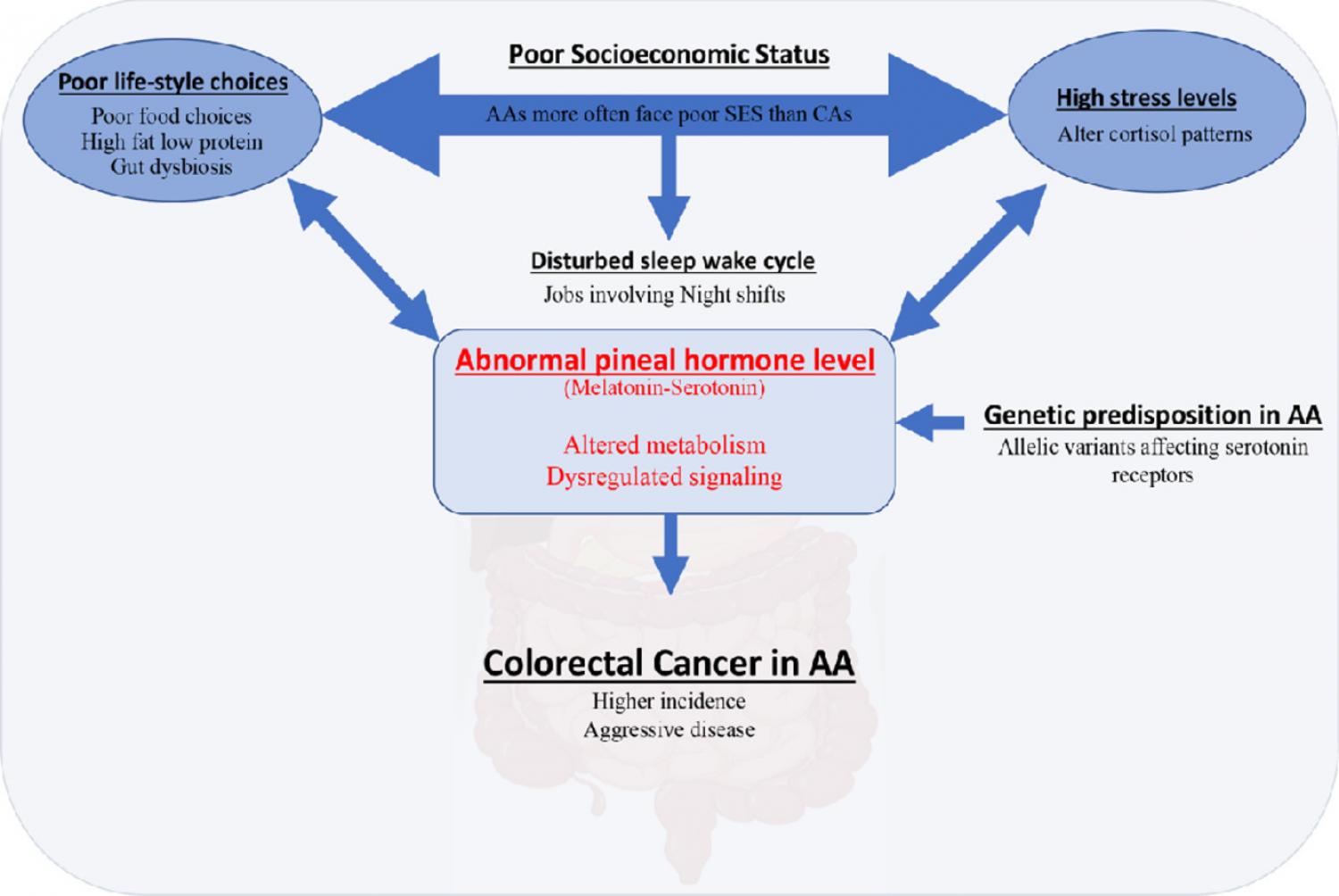
Colorectal cancer (CRC) is the third leading cause of cancer-related deaths in the United States. Despite increased screening options and state-of-art treatments offered in clinics, racial differences remain in CRC. African Americans (AAs) are disproportionately affected by the disease; the incidence and mortality are higher in AAs than Caucasian Americans (CAs). At the time of diagnosis, AAs more often present with advanced stages and aggressive CRCs, primarily accounting for the racial differences in therapeutic outcomes and mortality. The early incidence of CRC in AAs could be attributed to race-specific gene polymorphisms and lifestyle choices associated with socioeconomic status (SES). Altered melatonin-serotonin signaling, besides the established CRC risk factors (age, diet, obesity, alcoholism, and tobacco use), steered by SES, glucocorticoid, and Vitamin D status in AAs could also account for the early incidence in this racial group. This review focuses on how the lifestyle factors, diet, allelic variants, and altered expression of specific genes could lead to atypical serotonin and melatonin signaling by modulating the synthesis, secretion, and signaling of these pineal hormones in AAs and predisposing them to develop more aggressive CRC earlier than CAs. Crosstalk between gut microbiota and pineal hormones and its impact on CRC pathobiology is addressed from a race-specific perspective. Lastly, the status of melatonin-focused CRC treatments, the need to better understand the perturbed melatonin signaling, and the potential of pineal hormone-directed therapeutic interventions to reduce CRC-associated disparity are discussed.
